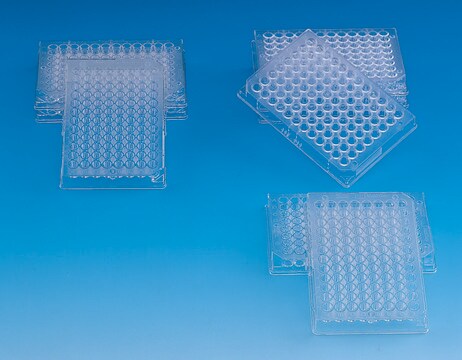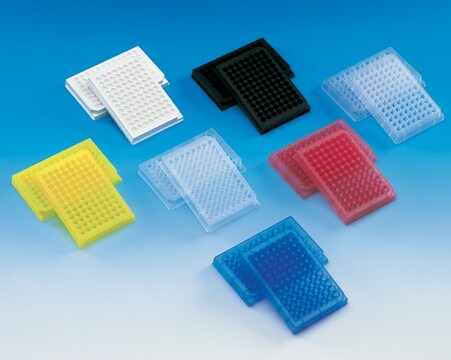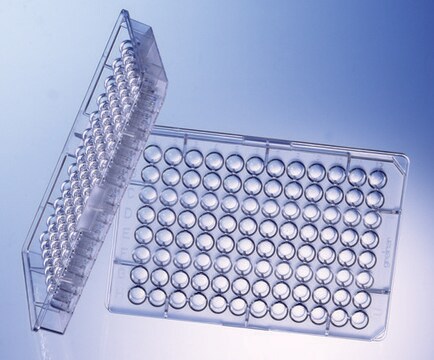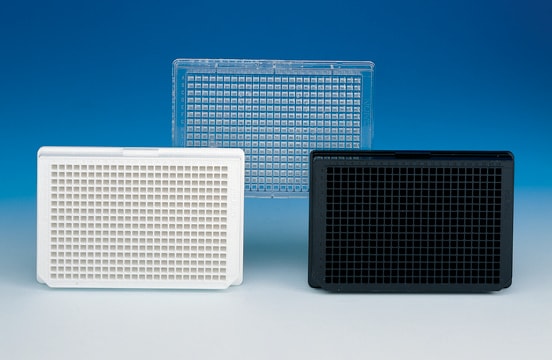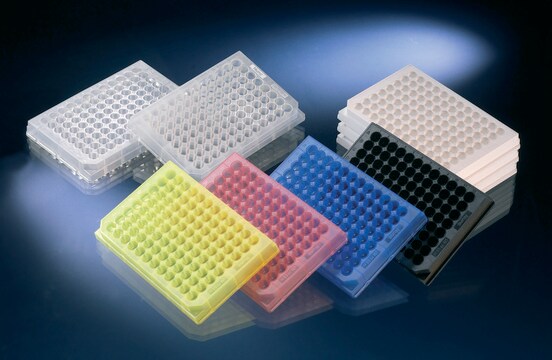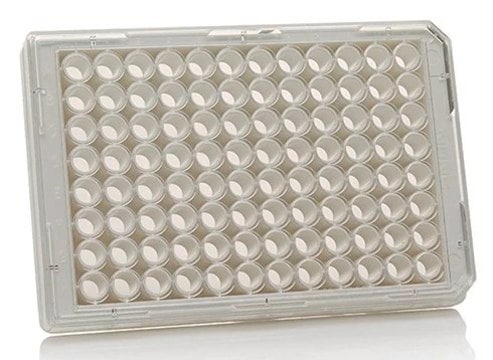M9410
Nunc-Immuno™ MicroWell™ 96 well solid plates
96 well MicroWell™ MaxiSorp™ flat bottom plate, pinchbar design
Synonym(s):
96 multiwell plates, 96 well microplates, 96 well microtiter plates, 96 well plates, ELISA plates, cell culture plates, immunoassay plates, tissue culture plates
About This Item
Recommended Products
material
flat bottom clear polystyrene wells
polystyrene
sterility
non-sterile
feature
lid: no
lid: no
skirt
packaging
case of 60 ea
manufacturer/tradename
Nunc 442404
plate L × W
128 mm × 86 mm
size
96 wells
surface area
2.7 cm2
total capacity
400 μL
well maximum volume
400 μm
working volume
350 μL
suitability
suitable for (quantitative/qualitative solid phase immuno assays (e.g. ELISA) and binding assays)
binding type
(MaxiSorp surface)
high binding surface
Looking for similar products? Visit Product Comparison Guide
General description
- Raised rims on the wells
- Certified reproducibility of binding
- Alphanumeric orientation system
- Fit standard equipment
- Barcodes available on request
Surface Treaments:
- PolySorp® surface treament, high affinity to molecules of a hydrophobic nature
- MediSorp™ surface treament, surface chemistry between PolySorp and MaxiSorp, provides low background signal with samples containing serum
- MaxiSorp™ surface treament, high affinity to molecules with mixed hydrophilic/hydrophobic domains
- MultiSorp™ surface treament, high affinity to hydrophilic molecules
Application
Legal Information
Certificates of Analysis (COA)
Search for Certificates of Analysis (COA) by entering the products Lot/Batch Number. Lot and Batch Numbers can be found on a product’s label following the words ‘Lot’ or ‘Batch’.
Already Own This Product?
Find documentation for the products that you have recently purchased in the Document Library.
Customers Also Viewed
Our team of scientists has experience in all areas of research including Life Science, Material Science, Chemical Synthesis, Chromatography, Analytical and many others.
Contact Technical Service